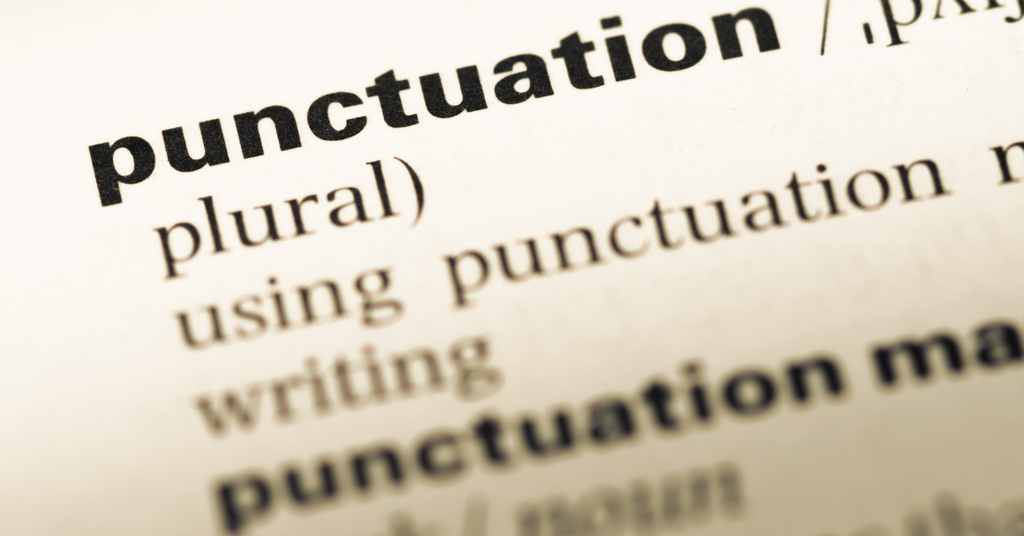You will face questions throughout the SAT® Writing exam that focus on punctuation usage. This means you will have to identify and improve semicolon, colon, dash, and comma usage errors.
Here is a breakdown of the most common errors you will find with punctuation rules and tips for improving them.
Colon
Colons are used to introduce a list or an explanation. Errors occur when a colon is not preceded by an independent clause.
Here are two examples of the improper use of a colon:
She has traveled to these countries: Italy, Spain, Argentina, Ireland, Germany, Scotland, Morocco, Mexico, France, and Japan.
Their dinner choices are limited because: John is allergic to seafood, Sarah is gluten intolerant, and Lizzie is vegan.
To improve these errors, you can adjust the first clause to be independent.
She has traveled to many countries: Italy, Spain, Argentina, Ireland, Germany, Scotland, Morocco, Mexico, France, and Japan.
Their dinner choices are limited: John is allergic to seafood, Sarah is gluten intolerant, and Lizzie is vegan.
Apostrophes
Watch out for apostrophe errors that occur when possessive nouns and contractions are confused. To fix a punctuation error with apostrophes, keep track of a noun’s ownership. You will need to pay special attention to errors with plural nouns.
Here are some examples of improper apostrophe use:
The movies’ ending was surprising.
The womens basketball team won the championship game.
Each of their parent’s cars are parked in the parking lot.
To fix the first error, you must identify that “movies” is meant to be a singular noun.
The movie’s ending was surprising.
To fix the next error, you need to add an apostrophe to display the women’s ownership.
The women’s basketball team won the championship game.
To fix the last error, you must identify that “parents” is a plural noun.
Each of their parents’ cars are parked in the parking lot.
Comma
The most common error you will have to identify is a comma splice. A comma splice occurs when a comma is placed in between two independent clauses. An independent clause is a phrase that is completely capable of standing on its own. These clauses must contain a subject and a verb.
Here are some examples of comma splices:
The students turned in their exams, the teacher graded them after class.
The dog loves the beach, his owner walks him there every morning.
The concert was sold out, I heard it was a great show.
The clauses on either side of the commas are independent. Each could stand alone, and each contains a subject and a verb.
To fix this error, you can split the clauses into two sentences, replace the comma with a semicolon, or convert the independent clause into a dependent clause.
Here are the correct versions, using each of the correction techniques
The students turned in their exams. The teacher graded them after class.
The dog loves the beach. His owner walks him there every morning.
The concert was sold out. I heard it was a great show.
The students turned in their exams; the teacher graded them after class.
The dog loves the beach; his owner walks him there every morning.
The concert sold out; I heard it was a great show.
The students turned in their exams, and the teacher graded them after class.
The dog loves the beach, so his owner walks him there every morning.
The concert was sold out, but I heard it was a great show.
Semicolon
In the SAT exam, a semicolon most often functions to join two independent clauses. For the colon to be necessary, the two clauses must be relevant to one another or build upon each other. Note the requirements for an independent clause above!
Here are some examples of errors with semicolons:
The game started at three; and she wanted him to meet her there.
Because I forgot her birthday last week; she didn’t respond to my phone calls.
She bought a new necklace; earrings, and shoes for the dance.
You can resolve these errors by removing the semicolon and replacing it with a comma or removing the conjunction that makes one clause dependent.
Here are some options for corrected versions.
The game started at three; she wanted him to meet her there.
The game started at three, and she wanted him to meet her there.
I forgot her birthday last week; she didn’t respond to my phone calls.
Because I forgot her birthday last week, she didn’t respond to my phone calls.
She bought a new necklace, earrings, and shoes for the dance.
Dashes
A single dash follows the same rules as the semicolon.
Here are some examples of errors with dashes:
The game started at three – and she wanted him to meet her there.
Because I forgot her birthday last week – she didn’t respond to my phone calls.
Here are some options for corrected versions. Note that sometimes the best option is to remove the dash altogether.
The game started at three – she wanted him to meet her there.
The game started at three, and she wanted him to meet her there.
I forgot her birthday last week – she didn’t respond to my phone calls.
Because I forgot her birthday last week, she didn’t respond to my phone calls.
Two dashes can be used to separate an independent clause from the rest of the sentence. You can think about them like parentheses. You may have to correct errors with dashes when they are mixed with commas.
Here is an example of the incorrect use of a dash:
Her sister, who studies law – is in town this weekend.
Her sister – who studies law, is in town this weekend.
Here is an example of proper dash usage:
Her sister – who studies law – is in town this weekend.
Note that you could remove the clause within the dashes, and the sentence still makes sense. This is crucial.
As you work through punctuation questions, consider pinpointing errors in the answer choices instead of seeking out the perfect answer. It may be easier to eliminate answers than it is to decipher which answer is the most correct.
You should also know that a general rule for SAT punctuation questions is that less is more. One of the goals throughout the Writing test is to find the most concise way to structure a paragraph, sentence, or passage. Only add punctuation where it is required for the logic and flow of the sentence.
Pay attention to punctuation use that is inconsistent, especially with commas and dashes.
You can practice your skills improving punctuation errors using UWorld’s SAT Prep Course. Our practice exams, detailed question explanations, and performance tracking tools can provide you with relevant experience for test day. Use these tools to find out more about your weak points throughout the Writing test. Try it out to boost your scores!




